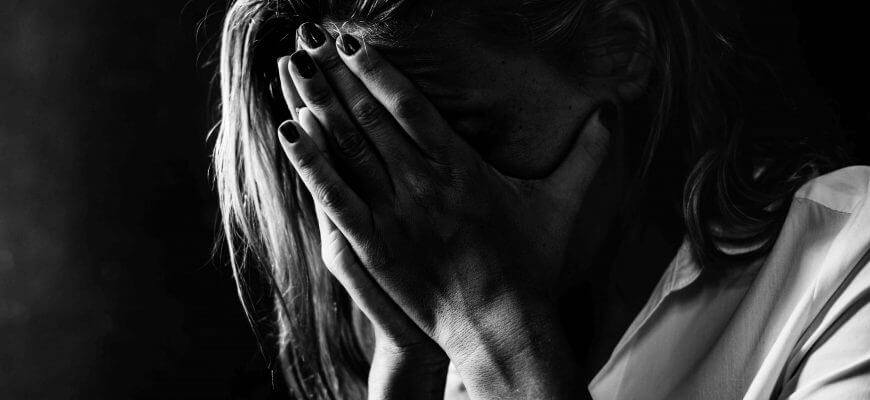
Visiting a doctor for depression should ideally be as normal as attending a physician for the cure of anxiety. 
In today’s society, more and more children and young people are experiencing depression and can affect their health. Sometimes, a major depressive episode can be linked with an anxiety disorder, creating a tough combination. When a person suffers from a mental illness such as depression and/or anxiety, they may also experience other mental health disorders such as schizophrenia, borderline personality disorder, and bipolar disorder.
One thing is for sure: mental health issues are becoming more and more common to discuss in an open forum rather than being hidden away in shame. Unfortunately, even though mainstream media recognize mental health issues and support the idea of providing help when needed, visiting a physician to get help for your depression or anxiety may not be as easy.
Younger age groups are seeing a rise in mental health disorders, which leads to a greater need for normalcy of treatment of mental health disorders. When children feel comfortable discussing their issues, treatment and prevention become easier.
Depression is Now Becoming More Evident in the Early Age Group
Know the Difference
When you’re not familiar with the differences between depression and anxiety, it may be easy to confuse the two disorders. This can make treatment of children more difficult as each of the mental health disorders require specific therapy for effectiveness and improve their health.
Depression
A child suffering from depression can cause physical and behavioral change. If these changes are not recognized and treated quickly, the depression could spiral out of control into something much worse and affect their health.
If you or a child you know experiences any of the following symptoms for more than a few days or weeks at a time with no end in sight, you should seek medical help immediately:
- Feeling low and/or sad
- Insomnia
- Oversleeping
- Unexplained weight loss or weight gain
- Unexplained decrease or increase in appetite
- A significant reduction in energy or feeling fatigued constantly
- Digestion issues such as pain, cramps, or aches
- Inability to concentrate or make decisions
- Difficulty remembering
- Suicidal thoughts
- An obsessive-compulsive disorder
- Mood disorders
- Eating disorders
- Many other problems
However, there are some emotional symptoms that may occur which do not manifest themselves in physical symptoms:
- Anxiety or emptiness
- Irritability
- Irrational anger
- Increased thoughts of suicide or death
- Feelings of worthlessness or guiltiness
- Loss of interest in things you found interesting in the past
Anxiety
While many people think depression and anxiety are pretty much the same, the issue is that they are quite different.
Anxiety gives a person irrational fear and worries over things that they typically cannot control. Constant stress can cause debilitating effects that leave a person unable to do much when plagued with anxiety. A person may know that their thoughts and feelings are irrational, but they simply cannot force themselves to stop having these irrational fears.
Symptoms of generalized anxiety disorder that pop up in physical form are:
- Fatigue
- Grinding of the teeth or clenching of the jaw
- Insomnia or difficulty falling asleep
- Increased heart rate
- Difficulty remembering or concentrating on tasks
Physical symptoms are not the only way anxiety manifests itself in a person. Emotional symptoms include:
- Panic
- Restlessness
- Unexplained and/or sudden irritability
Talking to Your Doctor
Finding a physician that takes your mental health concerns seriously may be more difficult than you anticipated. However, seeing the right doctor to get the treatment you need is extremely important. If you don’t, you may find that other mental health disorders are exacerbated or heightened such as schizophrenia, borderline personality disorder, and bipolar disorder.
When you do talk to your doctor, be sure to discuss the following to ensure that you receive the proper care:
- Not Feeling Like Yourself
It may seem like an uncomfortable conversation to have with your doctor, but it is an important conversation to have. This is a very common symptom to have when suffering from depression and/or anxiety. If your doctor knows that you don’t feel like your normal self, they will know the right questions to ask to figure out what’s really going on with your mental health.
- Difficulty Sleeping
There may be various reasons for having difficulty sleeping, but doctors are trained to figure out what the actual cause of the sleeplessness is. Because difficulty sleeping is a characteristic of both depression and anxiety, it is important to mention to your doctor right away. There are medications that can help solve this issue or other treatment plans to help alleviate the deep-rooted problem.
- Unexplained Emotional Changes
Many people who suffer from depression and/or anxiety report feeling sudden emotional changes and/or a loss of interest in things that used to excite them. This is something that you should definitely bring up to your doctor as it could be a sign of depression or anxiety. When your brain experiences chemical changes that can lead to depression and anxiety disorders, these sudden emotional changes can occur. Your doctor will know what to do if this is the case.
All of these symptoms are cause for concern for your doctor. When they are alerted to these changes in your mental health, they can help you figure out a treatment plan that will effectively assist to alleviate the issues you’re facing.
Finding the Right Treatment Plan
As stated above, depression and anxiety disorders are quite different. Because they affect a person’s mental health in different ways, the treatment plans should be uniquely tailored to the needs of the mental health concern. In some cases, medication like Wellbutrin XL can make all of the difference between functioning normally and not. Other times, a person will need prolonged treatments and care in combination with medication.
Bipolar disorders can also cause symptoms of depression to arise. This is important to keep in mind when seeking treatment as a bipolar disorder does require specific treatment plans that may differ from depression alone.
Depression and Anxiety Treatment Plans
Therapy and medications are two of the most common treatments for depression in today’s society. While there are other more holistic approaches, you can take, medical professionals that you will see in a doctor’s office will typically prescribe either therapy or medication (and sometimes a combination of both).
Therapy is a great solution for those who want to work on rewiring their thought processes. There are different types of treatment you can go to for depression. Your doctor will be able to refer to the right specialist to get you the right help you need.
A Hands-on Approach using Wellbutrin XL
Medications such as antidepressants or inhibitors can help alleviate the symptoms of depression. With medications, your brain’s chemical balance is restored which allows your mental health to return to a state of normalcy.
Some medications, such as Wellbutrin XL, can help fight off the effects of depression. This oral medication is used to improve your mood and overall feelings by helping to restore the chemical balance in your brain. Wellbutrin XL has also been proven to help with seasonal affective disorder (SAD), which plagues hundreds of thousands of people in geographical areas where the sun doesn’t often shine during the colder months.
While depression and anxiety have very similar treatment plans, the right type of treatment will be determined by your primary care physician and tailored to your specific needs.
Tags: Mental health, Mental health disorders, Mental illness

